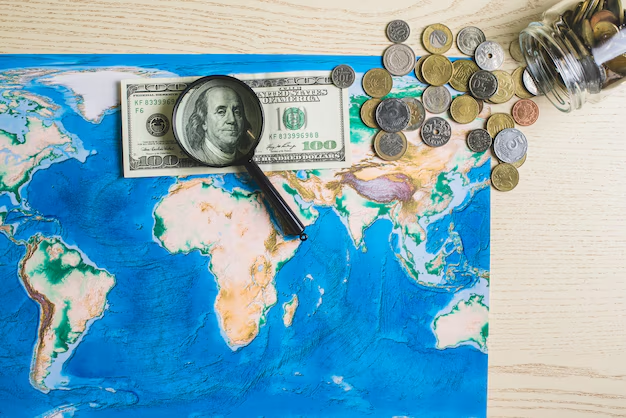“Keep more of what you earn. That’s the power of living in a tax-free country.”
Taxes can be used to improve your lifestyle, but they can be frustrating sometimes. What if you could live in countries with no personal income tax at all? Sounds superficial, but it is not!
Yes, such places exist. In fact, there are more than a dozen countries in the world where governments collect money in other ways, so they don’t need to tax your salary.
Let us discuss the top 10 countries with no income tax. You’ll learn how they manage their budgets, why people move there, and what it takes to become a resident or citizen.
Why Do Some Countries Have No Income Tax?
You might wonder: If people don’t pay income tax, how do these governments survive?
The answer is simple. These countries earn money from other sources, such as:
- Oil and gas production
- Tourism and resorts
- Banking and financial services
- Special fees, VAT, or duties
This system allows residents to keep more of their earnings while the government still has money to run schools, hospitals, and roads.
List Of Top Countries With No Personal Income Tax
There are 16 countries and territories in the world that charge no personal income tax. We picked the list of countries with no personal income tax based on a few things. We chose the
- places known worldwide as tax havens or financial hubs.
- Countries that are stable and can support themselves without income tax.
- liveability, safety, and services available for locals and expats.
- How easy it is to live there legally.
This makes the list useful not just for investors, but also for people curious about life in these tax-free nations. Then, without further ado, we will be talking about them one after another.
1. United Arab Emirates (UAE)

The UAE is considered to be one of the most renowned tax-free nations, where world cities such as Dubai and Abu Dhabi are situated.
Why no tax? Oil and gas make the government earn billions, but the government has also developed solid industries in finance, real estate, aviation, and tourism.
Who lives here? Millions of expats. Dubai alone possesses over 80 per cent foreigners, thus it is among the most international cities in the world. The nation is secure, contemporary, and possesses best-in-class infrastructure.
Residency: The UAE provides long-term visas, such as 10-year golden visas of investors, entrepreneurs, and highly skilled professionals. Residency can also be applied for by property owners.
In a nutshell: “Dubai is an example of how a nation can be built on trade and investment, rather than on income tax.
2. Qatar
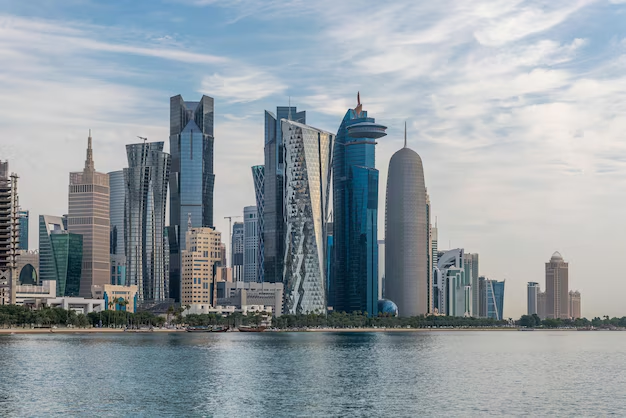
Another Gulf country that has no income tax is Qatar. Doha, its capital, has become a futuristic city with skyscrapers and a luxury lifestyle.
Why no tax? Qatar is a very wealthy country on a per capita level, and its revenue is primarily based on natural gas.
Quality of life: Clean, Modern, and safe, but also traditional. The living standard is easy, and the expat salaries are high.
Residency: It is hard to obtain permanent residency. Generally, foreigners are required to spend decades of their lives there, learn to speak Arabic, and fulfill severe requirements.
Fun fact: Qatar became the center of attention of the world as a small country hosting the FIFA World Cup 2022 as a modern power.
3. Kuwait
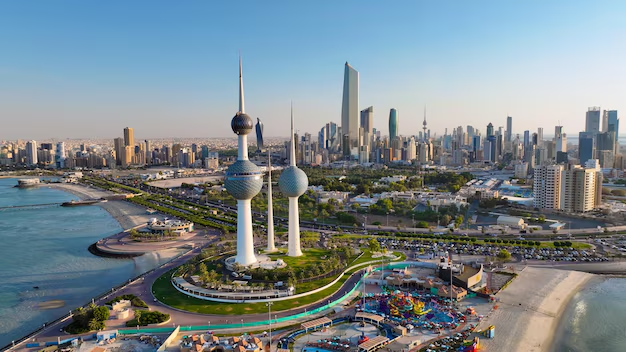
Kuwait is a fairly similar example to Qatar. It is strongly reliant on oil as the source of its economy that finances free healthcare, education, and a tax-free lifestyle.
Why no tax? Government expenditure is financed by oil revenue.
Expat life: Two out of every three people are expatriates, primarily of the working classes. Kuwait City is a global city with a great local tradition.
Residency requirements: It is extremely difficult to get permanent residency/citizenship unless you have family connections.
Kuwait is hospitable to short-term work contracts and not very favorable to long-term settlement.
4. Bahrain
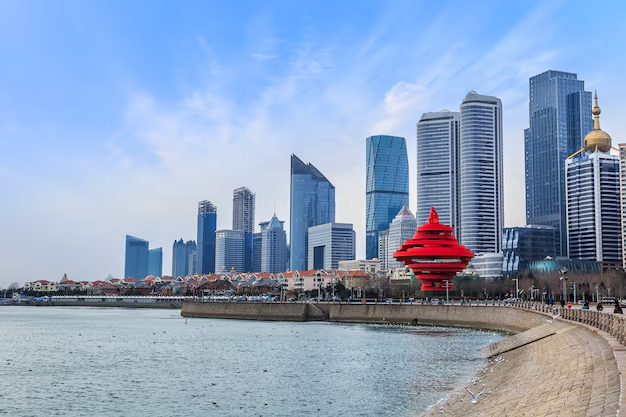
Bahrain became the first Gulf state to discover oil, and this gave it an advantage in wealth creation. It is also a banking and financial centre today.
Why no tax? Still, a large part of the economy is driven by oil exports and finance.
Life in a city: The capital, Manama, is quite easygoing and multicultural in contrast to other Gulf cities.
Residency: Foreigners are allowed to obtain residence by making an investment in property or establishing a business. Most are, however, out of the reach of citizenship.
Note: Bahrain is tax-free, but the immigration regulations are more strict than in the UAE.
5. Monaco
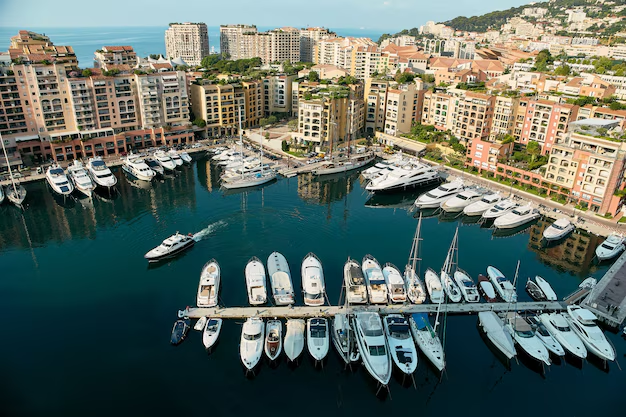
Monaco is the tax-free European gem. Located on the French Riviera, it is a rich-people playground, complete with yachts, casinos, and luxury apartments.
Why no tax? Monaco is not taxed, and it resorts to tourism, luxury real estate, and banking as a source of revenue.
Lifestyle: Exclusive, safe, and very high-end. It is the neighborhood of billionaires and Formula 1 fans, and movie stars.
Residency: Becoming a resident is possible if you can prove wealth and invest in property or local banks. It’s easier than in most Gulf nations but very expensive.
Simply: “Monaco is not just a country; it’s a lifestyle for the world’s wealthiest.”
6. The Bahamas
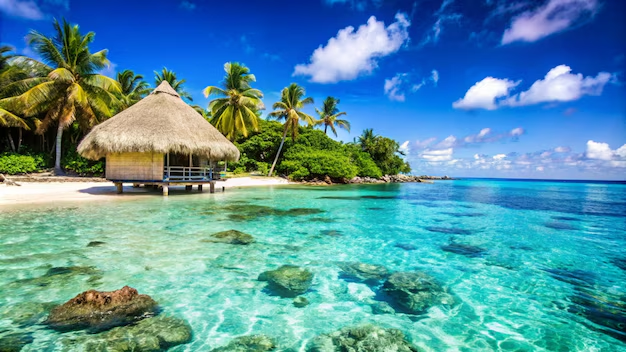
The Bahamas is a Caribbean paradise that has turquoise waters and white beaches with a tax-free lifestyle. It is one of the low-tax countries due to a variety of reasons.
Why no tax? The economy is fueled by tourism, and millions of tourists visit it annually.
Residency plans: Temporary permits can be obtained quite easily for a small fee. To purchase a permanent residence, you are typically required to spend at least US$750,000 in real estate.
Cost of living: It is high, though lots of people suppose that it is compensated for by the tropical style of life.
The Bahamas is a favourite destination among wealthy Americans seeking a second home close to the U.S.
7. Cayman Islands
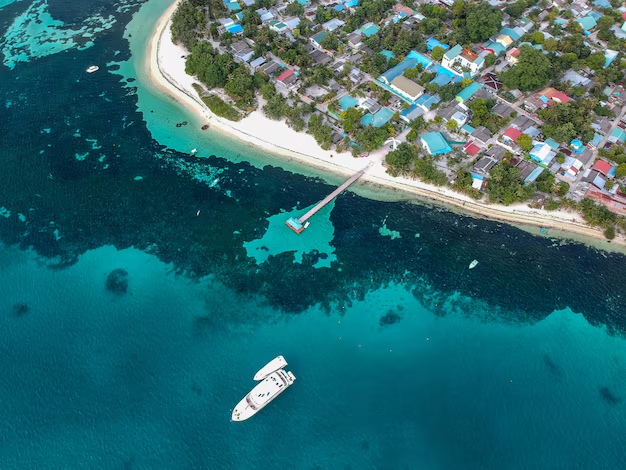
The Cayman Islands are famous worldwide as a tax haven and financial center. They are also famous for their gorgeous beaches and diving points.
Why no tax? The government is making money in banking, insurance, and luxury tourism.
Residency possibilities: You may reside there as an employee of a local company, business starter, or investor. The permanent residence usually needs approximately US1.2 million in property or business investment.
In our opinion, the Cayman Islands has it all: finance and paradise.
8. Maldives
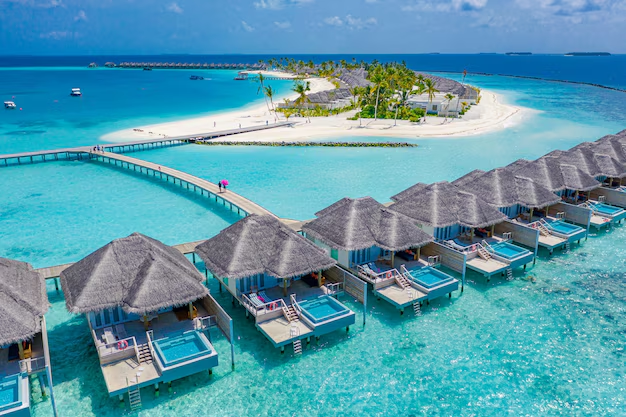
The Maldives is an ideal holiday destination, which boasts overwater bungalows and coral reefs.
Why no tax? Its economy is based on tourism.
Lifestyle: Quiet, beautiful, and vacation-perfect.
Residency: Citizenship is almost impossible, and long-term residence for foreigners is hard.
The Maldives can be ideal in cases of short stays and luxury holidays, but not as a permanent residence.
9. Brunei
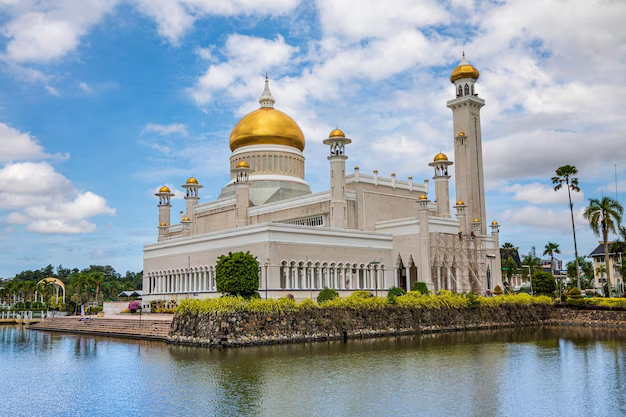
Brunei is a rich, small country located on the island of Borneo. It provides tax-free living but is bound.
Why no tax? All this is paid for by oil and gas exports.
Obstacles: The government is extremely strict, and there are limited opportunities for a foreigner. It is almost impossible to get permanent residency.
Who lives here? There is a small expat community and mostly locals.
Note: Brunei should not make people think that tax-free means living a life of ease.
10. Saint Kitts and Nevis
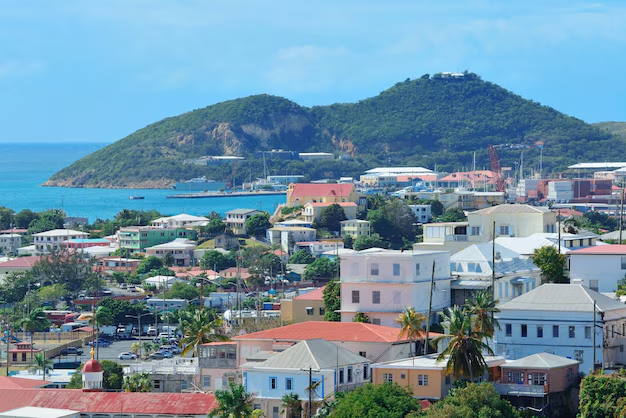
This two-island nation in the Caribbean is known to have a program of citizenship-by-investment.
Why no tax? Enough revenue is generated by tourism, real estate, and citizenship applications.
Limitless citizenship: A donation of US$250,000 or an investment of US$325,000 in property will earn you a passport.
Lifestyle: Beach, sunshine, and serene island living, the ideal second home for investors.
One of the most reachable tax-free destinations in which money can be invested is Saint Kitts and Nevis.
What About The rest of the Countries?
Other income tax-free countries are a few and include Nauru, Somalia, Oman, Vanuatu, Western Sahara, and Bermuda.
However, most are either unstable (Somalia), too remote (Nauru, Vanuatu), or do not receive foreigners very well (Oman).
That is why we chose our 10 top list that balances the lack of tax with the improved lifestyle and possibilities.
The Advantages of Raising Up in a No-Tax Nation
The financial and lifestyle benefits of being in a nation that does not collect income tax are pretty obvious. The following are only some of the largest advantages:
1. Keep more of your salary
In the absence of income tax, you do not lose a part of your earnings to the state. That is, increased home pay and increased control of your money. Tax-free living allows you to keep what you make and use it on what is important.
2. Faster wealth growth
It is easier to save and invest with the increase in disposable income. By investing in property, stocks, or your own business, the buildup of wealth can be faster without the persistent strain of deductions to income taxes.
3. A global lifestyle
Entrepreneurs, professionals, and investors around the world are attracted to most tax-free countries. This makes very global societies where you can create businesses, network, and have a cosmopolitan lifestyle.
4. Residency and second passports.
Numerous no-tax jurisdictions are providing residency or even citizenship under an investment program. As an example, locations such as Saint Kitts and Nevis give investors passports, and the UAE offers long-term visas to skilled professionals and entrepreneurs. This not only makes tax-free countries attractive as far as saving money is concerned but also as regards ensuring global mobility.
Final Thoughts
It is fantastic to live in countries with no personal income tax. However, it is not all about tax evasion. You must also think about:
- Safety
- Culture
- Cost of living
- Residency rules
Monaco and the UAE could be ideal in case you are seeking luxury and glamour. The Bahamas or Saint Kitts and Nevis are good in case you want to have a tropical life. The Cayman Islands is the place to be for global finance hubs.
Income tax is no more than a choice of money. It’s a lifestyle choice.”
Wish to know how to grow your financial portfolio, without the hassle? Get more of the practical at Net Income Zone, where complicated money issues are taught in a clear, do-not-need-a-codicology manner.
FAQs
1. Will U.S citizens evade paying taxes by relocating to a tax haven country?
No. U.S citizens continue to file taxes with the IRS even when they are living in other countries. Nevertheless, have tax breaks such as the Foreign Earned Income Exclusion (FEIE), which could save on your tax bill in the United States.
2. Are there any taxes that are paid in these countries?
Yes. Although they do not tax personal income, most of them impose other taxes, including VAT (sales tax), import duties, or property taxes. You will not pay income taxes, yet your daily costs can be increased.
3. Do you become an easy resident in a tax-free nation?
It depends on the country. Others, such as the UAE, provide long-term visas via investment or employment. There are some that demand evidence of wealth, such as Monaco. Permanent residency or citizenship is, in a majority of cases time time-consuming and costly.
4. Only the super-rich have a tax-free country?
Not always. Middle-class professionals or small investors can request residency in other countries, such as the Bahamas or Saint Kitts and Nevis. However, destinations such as Monaco or the Cayman Islands tend to be built around high-net-worth individuals.
5. So, what is the greatest disadvantage of residing in a no-tax nation?
The disadvantage is the cost of living. Most tax-free countries, particularly in the Gulf or Europe, are costly. Besides, permanent residency or citizenship can be extremely hard to attain.
Michael Adams is a professional finance writer with a focus on tax education, budgeting, and personal finance. His goal is to make income tax topics clear and practical for individuals and entrepreneurs.

